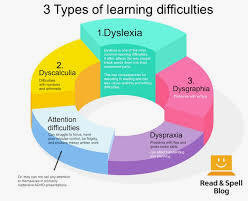Types

Learning issues are obstacles to learning academic abilities, especially math and reading. Neurological development disorders that impair the brain's capacity to process, store, and recall information are referred to as learning disabilities (LD). There are a number of different kinds of learning disabilities, including First, reading disability (RD), is a condition in which a person has trouble reading, decoding, and comprehending written language. Second, math disability (MD); this kind of learning disabilities includes challenges with mathematical processes, concepts, and problem-solving. Third type is both (RDMD): A person may struggle with maths and reading at the same time (Ahonen, Rescorla, Eloranta, & Aro, 2021)
Neurobiologically created illnesses that impair memory and thinking, and limit learning are known as learning disabilities (LD). The different kinds of learning disabilities. Among the frequently stated types are Dyslexia is a reading disorder marked by problems with comprehension, word recognition, and decoding. Dyscalculia is a math handicap characterised by difficulties with computations, problem-solving, and mathematical concepts. Dysgraphia is the inability to write clearly, including in spelling and handwriting. Disorders of Written Expression: Inability to write clearly and concisely, with problems with organisation, grammar, and punctuation. Difficulties with planning, scheduling, self-control, and organisation are symptoms of executive functioning disorders (Gartland & Strosnider, 2018)
